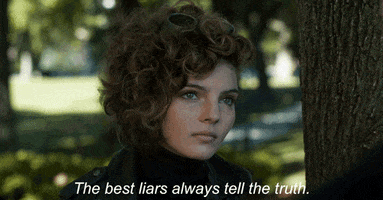Masters of deception: What happens when journalists plagiarise and lie
... includes the story of the *one* occasion when I was falsely accused of plagiarism
I have been accused of plagiarism once in 15 years as a professional journalist. It was the catalyst for me ceasing to be a contracted freelance writer for The Daily Telegraph. I wrote for the now-defunct and destroyed Telegraph Blogs vertical. I was paid £1,000/month no matter how many words I wrote. I wrote far more than I should have for the money I was being paid.
The false plagiarism incident came when I wrote a blog post about the arrest of a dark web drug dealer. I based my story on the indictment released by US law enforcement. The Daily Dot did the same with their report. That meant that our stories had similar structures — they were based on the same primary source — but The Daily Dot accused me, via my editor, of being a plagiarist. I strongly denied this. An internal investigation, conducted by the writer Tom Chivers, was started. He came back with some doubts despite software showing that I had not plagiarised the Dot’s piece.
I resigned. My editor rejected the resignation. The Daily Telegraph’s newly signed digital executive and editor-in-chief, the legendarily shit Jason Seiken, forced him to rescind the rejection and accept my resignation. The Telegraph then put it about that I had been sacked, so I published the letter they sent me. Things went quiet.
Some years later, Tom Chivers decently apologised to me for the investigation. There had been an effort behind-the-scenes by some people who did not like me to push me out of my already abysmally paid role.
All of this is to say: I don’t like plagiarism. I don’t do it, and I know how ruinous an accusation of being guilty of it can be.
This week, Ryan Broderick, a BuzzFeed senior reporter, whose work I have enjoyed in the past and who I follow on Twitter, was fired for plagiarism. BuzzFeed News newly-installed editor-in-chief published a list of stories that have been updated to note where material from other sources has been used without credit.
How does this happen?
Broderick has broken plenty of stories. He is a reporter with a track record of finding things out for himself. So why plagiarise? Because outlets like BuzzFeed News are sausage factories, with increasing pressure on reports to break scoops and hit traffic goals. Even good reporters can go sour in that environment… but that is no excuse.
In some famous cases, being caught out as a deceiver as well as a plagiarist has not led to much long term career damage. Johann Hari was infamously involved in two scandals in 2011, but he is now once again the darling of celebrities and journalists alike. Hari was not just a cut-and-paste plagiarist. His methods were more baroque and involved taking quotes given to other journalists and framing them as if they were told to him directly. He was forced to return the Orwell Prize and suspended from The Independent, before finally resigning.
In the same year, Hari was discovered to have made anonymous edits to the Wikipedia pages of journalists who had criticised his behaviour. Hari had been ‘David Rose’ who lashed out at various rivals. He publicly apologised.
Since the ‘scandals’, Hari has become a respected author with a book on the war on drugs, a TED talk, and a second book about depression and anxiety. The depression book was heavily criticised by the neuroscientist and writer Dean Burnett who noted that Hari appeared to be claiming long-established information as new discoveries. That this was similar to his previous behaviour didn’t seem to cause much of a fuss.
Others have been less fortunate. Jayson Blair, who famously resigned from the New York Times in 2003 after endemic plagiarism and fabrication in his stories for that paper, is noted on his Wikipedia page as “a former American journalist”. Blair, who is African American, did not get the redemptive second act offered to Hari.
However, in 2004, Blair did publish a memoir about his time at the NYT called ‘Burning Down My Masters’ House’, which discussed the scandal, his diagnosis with bipolar disorder, and his views on the organisation’s attitude to race. He is now a life coach, a profession where fabricating things is part of the job description.
Who knows if Broderick will be a Blair or a Hari? Only time will tell… and that’s a concluding paragraph that most editors would erase. But at least it’s all my own work.


